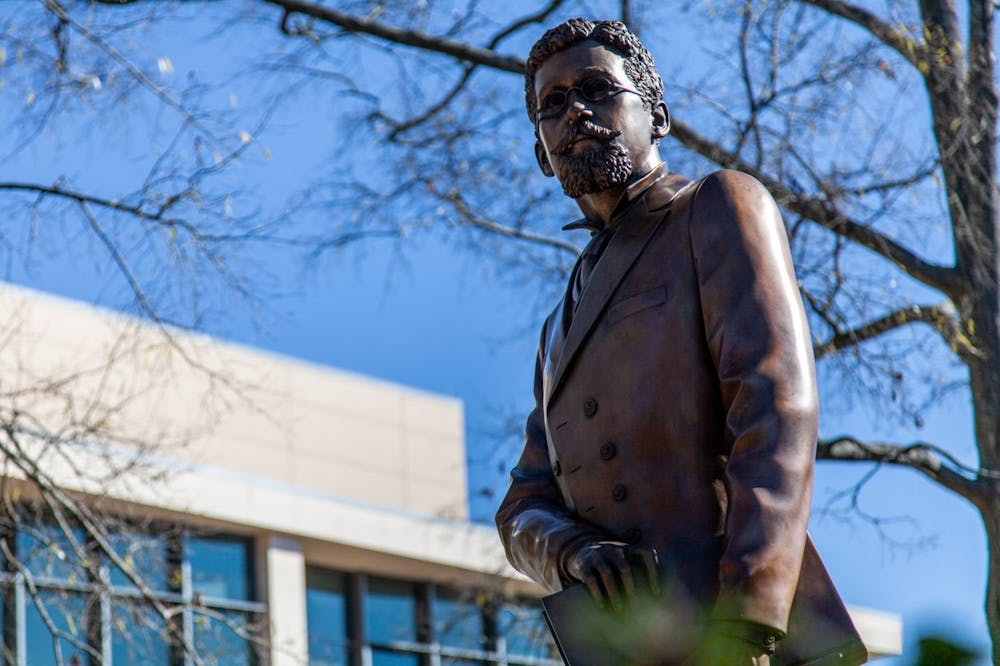Two professors recently released a book about the history of experiences that Black members of USC have on campus. They said educating the population paves the way to a better shared experience for marginalized groups on campus.
The African American Studies Program, along with the University of South Carolina Press and the Black Alumni Council, organized a virtual book launch and roundtable for this book's release.
Robert Greene II and Tyler D. Parry, who wrote "Invisible No More: The African American Experience at the University of South Carolina," met on Jan. 17 to celebrate Martin Luther King Jr. Day in a roundtable experience for the book.
The roundtable event discussed this broad collection of 12 essays which encapsulate the history of the university’s African American members, including stories from enslaved peoples that built the campus and the eventual desegregation of the school.
The event featured many speakers including Julian Williams, the university’s vice president for the Office of Diversity, Equity and Inclusion, and Randy Grimes, chair of the university’s Black Alumni Council.
Kayla King, a third-year political science student, and Hannah White, a fourth-year management and marketing student, led two sessions at the event. They said they strive to gain knowledge about a more inclusive campus.
The event illustrated the complex and rich history of the university in relation to the whole state during Reconstruction and other eras, and it also gives a voice to those who did not have one nearly 200 years ago.
The book invites its readers to have important conversations about race and remind them that this volume is just one of the many stories of the broader story of South Carolina. Parry, a professor at the University of Nevada, said he hopes more research comes out of this topic after the book is more widely read.
Williams praised the book, saying he hopes it will pave the way for the university's history further integrated into campus and curriculum.
Williams also encouraged students to look beyond their four years at the university and see how they are a part of a journey towards a more inclusive campus.
"Rather than just seeing their time at the university as a moment in time, you know, seeing it as a part of this larger fabric on this arc towards creating a more equitable, a more inclusive campus, I think is going to be important," Williams said.
This broad collection of essays pushes students and the citizens of Columbia to dive deeper into the history of Columbia and the university.
“I don’t think there’s any excuse for someone who graduates from the University of South Carolina to only know the names of slaveholders who were on that campus because there are other narratives. There’s other people who fought for a much greater equity and inclusion at the institution,” Parry said. “Their history should be known too."
Parry said that one chapter that significantly stands out to him is one that traces the life of someone who was formerly enslaved on the university campus — a historical record that survived the Jim Crow era.
Greene, a professor at Claflin University, spent an extensive amount of time reading and researching for the book, and he said he was thankful to be able to publish amidst current events and the pandemic.
Greene said USC was the first state-supported university to teach everyone no matter their skin color and have Black faculty members, like Richard T. Greener.
Events like this one pave the way for more research into not only the African American experience at the university, but the experiences of all marginalized groups.
"Our book is not the last voice on any of these topics," Greene said.

